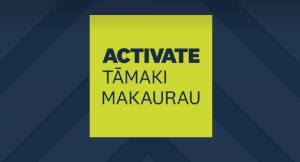Activate Tāmaki Makaurau – Business Advice and Implementation Grants
For many businesses in Auckland, it’s been a tough year. Navigating Level 4, Level 3, Level 3.1, Level 3.2, and Red have all had their own challenges and a move to Orange will have both rewards and challenges for businesses that have made it to this point.
The $60 million Government support package for Auckland businesses that was announced on 22 October 2021 is now open. There is $50 million available to fund advice and planning support for businesses and the implementation of that advice. A further $10 million is available for mental health and wellbeing support. In order to access this support, you will need to be registered with Activate Tāmaki Makaurau. This link will take you to the registration form: https://www.aucklandnz.com/activateauckland/activate-tamaki-makaurau-client
McDonald Vague is a registered service provider for Activate Tāmaki Makaurau in the following areas:
• Business Planning, Strategy and Continuity
• Financial Planning and Cashflow Management
• Business Hibernation or Exit
If you or your client think you would benefit from obtaining business advice from McDonald Vague in one or more of these areas, we are happy to work with you and/or your client to put together a bespoke business advice proposal that meets your client’s needs.
We have also developed two service offering under the Activate Tāmaki Makaurau business advice grant ($3,000 plus GST), which will be tailored to your client’s needs:
1. Crossroads
Undertaking a review of the business with the company’s owners, including reviewing the company’s cashflow and financial management, and undertaking a restructuring/turnaround assessment to determine whether the business should:
o Continue to trade – implement financial and cashflow management, business continuity planning, consider new opportunities and customer identification, operational improvements, and business coaching
o Restructure the business – implement financial and cashflow management, scale down/streamline operations, customer identification, and debt restructuring
o Wind down and close the business – implement liquidation planning and support
2. Road to Recovery
Undertaking a review of the business with the company’s owners, including a review of the company’s cashflow and financial management, and a restructuring assessment to determine what steps should be taken to:
o Reduce compliance costs
o Make operational improvements
o Improve financial and cashflow management
o Streamline operations
Once the business advice has been given and a plan for moving forward has been developed, the business can apply for an implementation grant ($4,000 plus GST), with which to fund the implementation of the business advice.
McDonald Vague has five licensed insolvency practitioners and we are able to provide liquidation services to businesses requiring these exit services as part of implementing their business plan and/or business advice.
If you want to know more, please email us on This email address is being protected from spambots. You need JavaScript enabled to view it. or call Marisa on 021 2424497.
More information on Activate Tāmaki Makaurau’s offerings can be found on its website: https://www.aucklandnz.com/activateauckland
Insolvency by the Numbers: NZ Insolvency Statistics November 2021
Economic Rundown
While it feels like we have powered through the last quarter of this year, unbelievably it is already mid-December, and we are one week out from Christmas. Everyone is in a flurry of busyness trying to clear their desks before the holiday period and we enter the seasonal slowdown. Due to the late move in the alert level system and reopening of hospitality venues, especially in Auckland, a lot of the usual Christmas functions from clients, associations and work do’s have been cancelled. Due in part to the uncertainty of the time and the months of planning required. Businesses will no doubt be feeling the hurt having missed out on a traditionally busy time of year for them.
The Traffic Light System is now in effect, towns that had previously experienced Level 2 freedoms have now moved to the Red traffic light level owing to low vaccine levels and increased restrictions experienced. The ‘light at the end of the tunnel’ (for want of a better term) is the promise of the whole country moving down to the Orange level alert on New Years Eve. At some stage we may see towns and regions progress to the Green level; when this will be, is anyone guess.
From a property market point of view, murmurs continue that property is beginning to slow down in certain regions with higher housing supply when compared to the last 2 years in the lower North Island. The high levels of building projects coming to completion in 2022 and tightened banking restrictions may see some of the pressure taken out of the residential housing market. Whether this will result in a downturn or we end up with a flat market for a few years is yet to be seen. The high levels of inflation in both NZ and abroad with likely continued ORC rises in the coming months with the next announcement in Feb 2022.
From supply chain perspective shortages continue in both the building sector and other industries. This also shows up in the retail space as Christmas demand creates empty shelves and a postal system that was struggling with package delivery deadlines coming into December has been blown out even further with Christmas. NZ Post currently has on the website to not call them until the delay has gotten out to 10 working days. Otherwise, we are asked to wait patiently for our packages.
Company Insolvencies – Liquidations, Receiverships, and Voluntary Administrations
November company insolvency appointments continue the downwards trek of the last 5 months. As seen in the below graph, corporate appointments remain below the 2018, 2019 and 2020 figures in the lead up to the traditionally slower December and January months when the courts and legal profession take a break.
Of note is that solvent liquidations have fallen back down to 20% of total appointments from the unusual highs of the last few months that saw them make up 30%+ of appointments. The month saw 108 total appointments; 18 being made up of court appointments and 60 from shareholder appointments. This is the lowest levels of court appointments even when compared with January 2021 and in line with the drop-in court appointment seen in November 2020.
Insolvency by Industry
“Construction & Property” industry company appointments saw a slight drop from September and October 2021 figures but remain high and make up 31% of total appointments. These figures include both solvent and insolvent appointments. “Accommodation and Foods Services” maintain their 2nd place trophy with little change in overall percentage of appointments. “Transport, Postal and Warehousing” along with “Professional, Scientific and Technical Services” have both jumped to 13% for the month displacing “Retail Trade” to the lowest sector in the pie graph. This likely being the result of stores opening in the traffic light system and the hope of Christmas trade bringing some much needed funds into the coffers.
Personal Insolvencies – Bankruptcy, No Asset Procedure and Debt Repayment Orders.
Bankruptcy appointments for the month of November have dropped off, compared to prior months with debtor applications making up 2/3rds of total bankruptcies. No Asset Procedures have lifted on past months figures and Debt Repayment Orders remain consistent on the past 3 months. It will be interesting to see how the usual Christmas over spending and financial hangover that follows will affect 2022 figures. Whether or not personal insolvency figures pick up now that government Covid subsidies and support have come to an end, with no plan for new subsidies yet evident under the traffic light system, as they do not incorporate a lockdown in the current traffic light levels.
In a continuing trend that has differed from the past insolvency figures, corporate insolvency figures remain above personal insolvency figures. However, the downward trend seen since July 2021 continues for both personal and corporate insolvency, right around the time of the latest lockdown restrictions and government support.
Winding Up Applications
For the first time since April 2021, IRD has filed less winding up applications than all other creditors. Of the 13 IRD winding up applications filed, only 1 was from the High Court at Auckland. Once again applications have taken a drop from the prior month; as going off the December application for the month to date, we have only seen 3 winding up application, so far indicating it will be a very slow December in this respect with courts due to close shortly.
Below is a graph showing those companies that ended up in liquidation following a winding up application. IRD makes up a sizable portion of creditor applications. Likely the result of having to follow through their collection processes to the end, or in this case the point of liquidation along with given the lenth of time it takes for IRD to pursue a debt. There will often be minimal assets remaining in a non trading company at this point and the application will often go undefended, while other creditors will often be taking action against companies that continue to trade.
If you want to have a chat about any points raised or an issue you may have you can call on 0800 30 30 34 or email This email address is being protected from spambots. You need JavaScript enabled to view it..
Keaton.
Criticism by the Courts - Liquidator Fees
Liquidations advanced through the High Court require Court fee approval in most cases.
Shareholder appointments also subject to some form of review and oversight. In some liquidations a committee is appointed.
Every insolvency practitioner now needs to be licensed and is subject to a complaints and disciplinary process.
A reasonable and competent liquidator should take into account the amount owed to creditors, the prospects of recovery and consider the cost versus benefit of advancing claims and legal actions. It is a liquidator's obligation to maximise the return to creditors and to act in a reasonable and efficient manner.
There have been a number of cases now where liquidators have been scrutinised for charging excessive fees.
Liquidators facing criticism
It was recently published that creditors of a hydroponics company were entitled to be paid more than $56,000 from the reimbursement by the liquidators of fees taken after the High Court deemed the fees were "not reasonably incurred" and hard to justify.
In 2020, another Liquidator faced the Court reducing their fees by 25% in one case and 67% in another. The Judge said "If this liquidation had gone to smaller insolvency practice, I am satisfied the liquidation could have been completed in a shorter time."
The most recent case highlights that Liquidators seeking to discharge their duties should do so with costs and benefits clearly in mind; the benefits ordinarily being those to the creditors. The costs of litigation have to be reasonably incurred and proportionate.
The High Court has the ability to fix a global sum as remuneration if a liquidator has supplied too little information to enable a clear view to be formed on whether the amount claimed was reasonable.
The liquidator bears the onus of establishing that the claimed remuneration is “reasonable” and that the benefit of any doubt, based on the inadequacy of information provided by a liquidator, should be resolved in favour of the creditors.
Case Authority
The Court in Medforce found there must be enough information to enable an assessment of whether the total costs charged are reasonable.
As a minimum a statement of the work undertaken during the course of the liquidation, together with an expenditure account sufficiently itemised to enable the charges made to be related to the work done is required. The Court said “The detail would have to be sufficient to enable the judicial officer to determine whether the personnel involved in the liquidation and their respective charge-out rates were appropriate to the nature of the work undertaken. This information may in some cases raise concerns as to whether there has been overservicing and overcharging. If there are suggestions of this in the information provided, the Court can request further information. “
The leading case, Re Roslea Path Ltd (in liq), deals extensively with the principles and practice on applications to fix liquidators’ remuneration. The Court held that “in fixing a liquidator’s remuneration, it is determining the fairness and reasonableness of what has been charged when measured against the work undertaken and the result achieved. Fair and reasonable remuneration is the value of the services to the creditors and shareholders. Value is an elusive concept which goes beyond mathematical application of hourly rates to hours spent in administrating the company’s affairs.”
The New Zealand Courts support an Australian decision, Conlan v Adams that focussed on where time had not been used reasonably:
(a) work beyond the power of the liquidator;
(b) work done negligently;
(c) unnecessary work (covering decisions to carry out the work and over-servicing);
(d) work by people with inappropriate seniority; and
(e) work at inappropriate rates.
Summary
The recent judgment encourages liquidators to disclose relevant information as to remuneration to creditors during the liquidation.
If liquidators take a course of action which is not required in the liquidation, the court may disallow both their expenses and their remuneration for that course of action.
The legal basis is that regardless the court’s power of review of remuneration under ss 276 and 284, liquidators have no right to claim for expenses not required for a liquidation. Under Schedule 7(1) of the Companies Act, liquidators may be paid only “the fees and expenses properly incurred”.
At McDonald Vague our objective is to maximise the return for creditors. We do not always achieve a return for unsecured creditors but have a good reputation for taking a firm and fair approach and getting returns. Cost/benefit is always a consideration.
Relevant Articles:
How our firm works for you
Who pays the liquidator
Liquidators Duties and competence
Business Advice - Activate Tāmaki Makaurau support
Business Advice to Auckland based businesses
The Business Advice & Implementation Grants are now available for application. Auckland businesses can apply for up to $3000 + GST through Business Advice support. An Implementation Grant will pay for specific services to put your business advice or plan into action.
If you’re looking for expert advice and support in areas such as Continuity, Financial Planning, Business Hibernation, Compromises or Exit, we can help get you there. You can access advice if you are considering hibernating or closing your business, or are looking to restructure.
The advice should lead to a plan to overcome challenges and/or identify opportunities and map out the scope of the work required to achieve the plan.
Implementation Grant
You can also register for help to put your business plan or advice into action – either an existing business plan or a plan based on the Business Advice received through Activate Tāmaki Makaurau. The implementation grant is $4,000 + GST.
Eligibility to Access Business Advice and an Implementation grant
Your business needs to:
• be operating with 100 full time equivalent employees or less
• be GST registered in New Zealand
• have a New Zealand Business Number (NZBN)
• be operating in a commercial environment
• be a privately-owned business or are a Māori Trust or incorporation under the Te Ture Whenua Māori Act 1993 or similar organisation managing Māori assets under multiple ownership
• primarily operate within the Auckland Alert Level 3 boundary
• be an existing business that is trading prior to 22 October 2021
Register for Support
Businesses need to register for Activate Tāmaki Makaurau support. McDonald Vague have registered with Activate Tāmaki Makaurau.
Business Advice, register here
Implementation Grants, register here
Our Service Offering
A review of the business, including a review of the company’s cashflow and financial management, and a restructuring/turnaround assessment to determine whether the business should:
- Continue to trade – implement financial and cashflow management, business continuity planning, consider new opportunities and customer identification, operational improvements, and business coaching
- Restructure the business – implement financial and cashflow management, scale down/streamline operations, customer identification, and debt restructuring
- Wind down and close the business – implement liquidation planning and support
First Steps - Contact us on This email address is being protected from spambots. You need JavaScript enabled to view it. for further information and to assist with the application.
We’re here to help your business.
Insolvency by the Numbers: NZ Insolvency Statistics October 2021
Economic Rundown
As we pass the 100-day mark of Auckland’s lockdown businesses unable to trade at 100% capacity continue to struggle due to the alert level restrictions in place. The country was given the target of 90% fully vaccinated to move into the traffic light system, this has now been pulled forward for all regions from the start of December. The percentage of people vaccinated will have some influence at what traffic light setting the regions enter the new system at. For Auckland this can only mean a drop in restrictions as the highest vaccinated region however for some small regions with lower vaccinated levels they will likely see tighter restrictions in their region. Until then neighbouring regions phaze in and out of the various levels of lock down while covid continues to spread across the north island.
Insolvency figures continue at the low levels of the past few months. Business support remains in place from government subsidies. How this will transition to the new traffic light system is yet to be seen with the resurgence support payments previously available till the region returned to alert level 1.
Market constraints continue to affect the economy with unemployment continuing its downward trend to 3.4% for the September quarter, supply restrictions a constant concern and the cost of living is on the rise with inflation on the up. For homeowners interest rates are on the rise with the lift in the OCR projected to have a reasonably quick affect with a high level of borrowers fixed for 1 year or less. Shipping delays and high shipping costs continue to be an issue for businesses moving into the Christmas period.
Company Insolvencies – Liquidations, Receiverships, and Voluntary Administrations
Company insolvency appointments are sitting at 2020 levels for October 2021 and continue their downward trend. This is normal heading into Christmas with the lows of January ahead as most professional services take the month off. Of note are the high levels of solvent liquidations when compared to previous years at 30 for the month as shareholders continue to wind up solvent businesses and distribute the profits for use elsewhere. Receiverships saw a jump for the month up to 9 both company and personal receiverships up from the 4’s posted in the 2 prior months. As mentioned last month shareholder and creditor appointments both continue to drop.
Insolvency by Industry
“Construction & Property Development” and “Accommodation & Food” continue to make up just under half the total appointments at similar figures to those detailed last month. Retail have increased in number of appointments from 7% to 13% while the remainder of the categories play musical chairs in the low percentiles.
Personal Insolvencies – Bankruptcy, No Asset Procedure and Debt Repayment Orders.
October figures saw a slight bounce back from September lows but are still well below 2019 and 2020 personal insolvency levels. Time will tell how rising inflations will affect personal insolvency figures as the usual Christmas squeeze hits wallets and overspending goes on the credit card moving the problem into 2022.
Winding Up Applications
With the lower alert levels outside of Auckland in October the IRD has begun to take action against those businesses in arrears that are in these lower alert level regions.
If you want to have a chat about any points raised or an issue you may have you can DM me, call on 0800 30 30 34 or email This email address is being protected from spambots. You need JavaScript enabled to view it..
I am always available for a chat and am happy to help.
Keaton.





